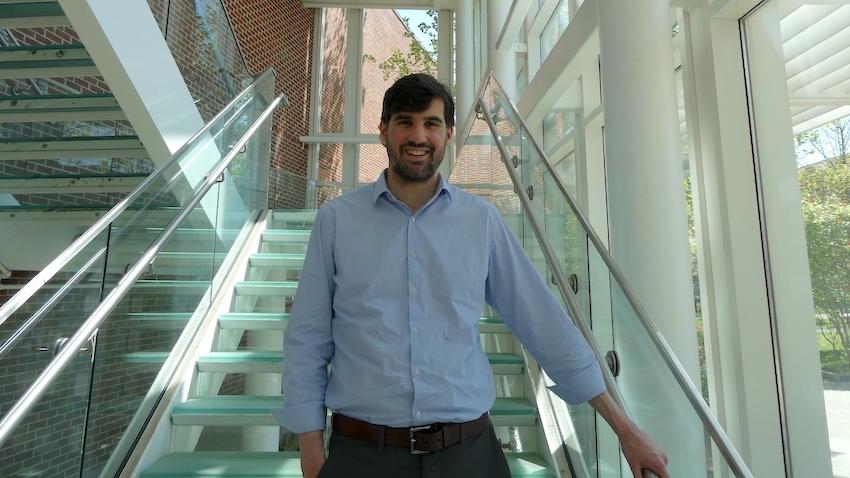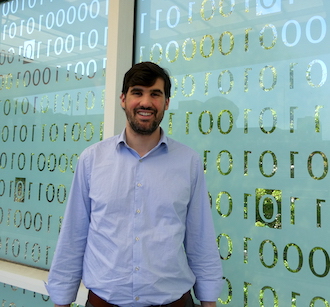
New Faculty Q&A: Jacob Laurel
Jacob Laurel joined the School of Computer Science as an assistant professor this spring.
Laurel completed his PhD in Computer Science at the University of Illinois Urbana-Champaign in the fall of 2024. He is interested in researching programming languages, specifically ones that manage a mathematical component.
“Such programming languages allow a programmer who doesn’t know calculus to create a machine learning model, and the programming language will automatically generate the code to compute the derivatives, without the programmer needing to worry about it,” Laurel said.
Laurel said that he ultimately wants to push the limits of these programming languages’ applications and capabilities.
Laurel is also excited to work with other faculty and students at Georgia Tech.
“Part of what drew me to this profession was the ability to work with smart, curious, and talented people. I’m also really looking forward to being able to mentor and cultivate the next generation of great computer scientists” he said.

What interests you about working at Georgia Tech?
Working at a top school that excels in multiple areas is immensely appealing since great collaboration opportunities exist. In addition, I was impressed by the collegiality between the faculty, the excellent students, and the level of support that exists for junior faculty.
What will your research consist of?
My research centers on programming languages, specifically program analysis. I aim to write programs to automatically determine whether other programs obey specific properties automatically. For instance, developers regularly write programs that compute derivatives (such as for machine learning) or compute probabilities (such as for statistics applications), but ensuring that these programs obey the correct mathematical properties remains challenging. As a practical example, how would someone verify that when running a machine learning program, a derivative does not overflow and cause the program to crash? While this question seems quite practical, to build effective solutions, one often needs insights that are much more theoretical. Hence, the recurring theme of my research is finding ways to bridge this gap between theory and practice by looking through the lens of the programming language.
How did you get interested in this field of research?
I really enjoy programming, which was the first step that led me to this topic. Secondly, having done my undergraduate degrees in both math and electrical and computer engineering, I was looking for a way to combine theoretical ideas from the math side with practical concerns from the engineering side. A programming language serves as a natural bridge that spans the entire computing stack: from the algorithm down to the architecture. Hence the study of programming languages and program analysis fit my goals perfectly.
What are you most looking forward to in your new position?
Working with great students in addition to collaborating with leading faculty across a range of areas is very exciting to me. I'm also excited to explore new research directions in areas that Georgia Tech already excels in.
What do you enjoy doing in your free time?
To relax, I enjoy getting outdoors and exploring nature, and Georgia has tons of great natural scenery. Additionally, I like to play the piano, especially jazz or blues.
As computing revolutionizes research in science and engineering disciplines and drives industry innovation, Georgia Tech leads the way, ranking as a top-tier destination for undergraduate computer science (CS) education. Read more about the college's commitment:… https://t.co/9e5udNwuuD pic.twitter.com/MZ6KU9gpF3
— Georgia Tech Computing (@gtcomputing) September 24, 2024


